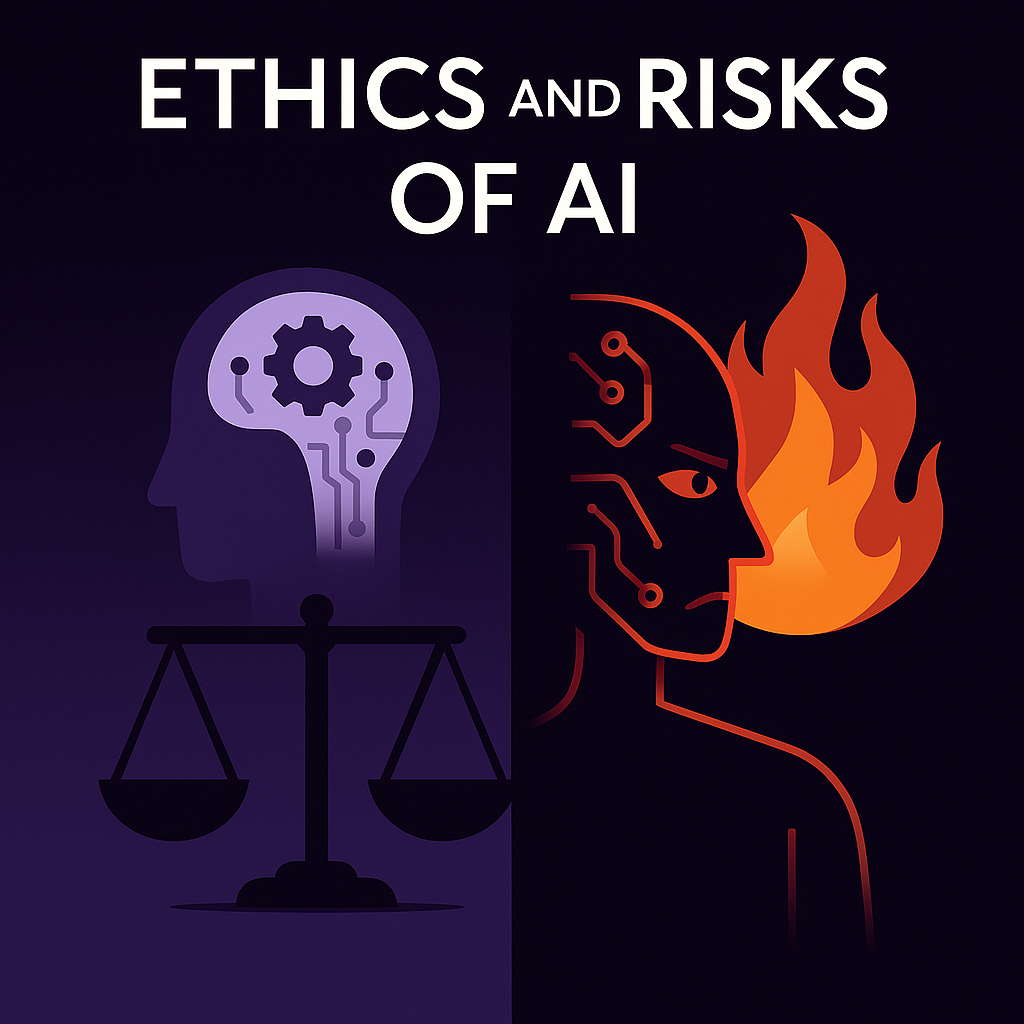Artificial intelligence (AI) is transforming industries and reshaping decision-making processes across the globe. However, as implementation of AI systems become more integrated into our daily lives, they raise significant ethical concerns and risks that must be addressed to ensure responsible and equitable use.
What Are the Major Ethical Concerns in Artificial Intelligence?
Understanding Ethical Issues in AI Development
AI development often involves complex algorithms and vast datasets, which can inadvertently introduce biases and ethical dilemmas. For instance, AI software’s trained on historical data may perpetuate existing societal biases, leading to unfair outcomes in areas like hiring, lending, and law enforcement. Encyclopedia Britannica
Transparency in AI Algorithms: Why It Matters
Transparency in AI algorithms is crucial for building trust and accountability. When AI decision-making processes are opaque, it becomes challenging to identify and rectify errors or biases. Ensuring that responsible AI systems are explainable allows stakeholders to understand how decisions are made and to hold developers accountable for outcomes.
Bias in AI: How It Affects Decision-Making
Bias in AI can lead to discriminatory practices, especially when algorithms are trained on unrepresentative or flawed data. Such biases can affect critical decisions in healthcare, criminal justice, and finance, potentially harming marginalized communities. Addressing bias requires careful dataset selection, algorithmic fairness, and ongoing monitoring. World Economic Forum
How Does Generative AI Pose Ethical Challenges?
Ethical Considerations for Using Generative AI Tools
Generative AI, which creates content such as text, images, and audio, raises unique ethical questions. The potential for misuse, such as generating deepfakes or spreading misinformation, necessitates guidelines for responsible use and content verification.
Impact of Generative AI on Personal Data Privacy
Generative AI systems often require large datasets, which may include personal information. Without proper safeguards, there’s a risk of violating individuals’ privacy rights. Implementing data anonymization techniques and obtaining informed consent are essential steps in protecting personal data.
Responsible Use of AI: Addressing Ethical Challenges
Developers and users of AI must commit to ethical principles, including fairness, accountability, and transparency. Establishing ethical guidelines and conducting regular audits can help ensure that AI technologies are used responsibly and do not cause unintended harm.
What Are the Risks Associated with AI Technologies?
Identifying Risks of Artificial Intelligence in Automation
Automation through AI can lead to job displacement and economic disruption. While AI can enhance efficiency, it’s essential to consider the societal impacts and implement strategies to support affected workers through retraining and education programs.
Potential Risks of AI Systems in Autonomous Vehicles
AI-driven autonomous vehicles present safety concerns, especially in unpredictable environments. Ensuring the reliability and robustness of these systems is critical to prevent accidents and build public trust in autonomous technologies.
Risk Management Strategies for AI Implementation
Effective risk management involves identifying potential hazards, assessing their impact, and implementing mitigation strategies. Organizations should develop comprehensive risk assessment frameworks tailored to their specific AI applications.
How Can We Ensure Ethical Responsibility in AI Applications?
Defining Ethical AI: Principles and Practices
Ethical AI encompasses principles like beneficence, non-maleficence, autonomy, and justice. Adhering to these principles ensures that AI technologies contribute positively to society and respect individual rights.
Promoting Transparency in AI Systems
Transparency involves making AI systems understandable and accessible to users. This includes clear documentation, open communication about capabilities and limitations, and mechanisms for user feedback and redress.
AI Ethics: Balancing Innovation with Ethical Responsibility
While innovation drives progress, it must be balanced with ethical considerations. Incorporating ethical reviews into the AI development lifecycle helps identify potential issues early and fosters responsible innovation.
What Benefits and Risks Come with the Use of AI?
The Benefits of AI in Decision-Making and Efficiency
AI can process vast amounts of data quickly, leading to more informed decision-making and increased operational efficiency. In sectors like healthcare, finance, and logistics, AI has the potential to improve outcomes and reduce costs. Financial Times
Evaluating the Risks of AI in Various Industries
Despite its benefits, AI poses risks such as reinforcing existing biases, compromising privacy, and creating dependencies on automated systems. Continuous evaluation and adaptation are necessary to mitigate these risks effectively.
Ethics of AI: Navigating the Benefits and Risks
Navigating the ethical landscape of AI requires a proactive approach that considers both the potential advantages and the associated risks. Stakeholders must engage in ongoing dialogue, policy development, and education to ensure AI serves the public good.
Learning from “AI First, Human Always” by Sandy Carter
For business leaders seeking to adopt an AI-first approach while maintaining ethical integrity, Sandy Carter’s book, AI First, Human Always, offers valuable insights. The book emphasizes the importance of integrating AI technologies thoughtfully, ensuring that human values remain central to innovation. By exploring real-world examples and providing strategic guidance, Carter’s work serves as a practical resource for organizations aiming to leverage AI responsibly.
For more on the intersection of AI and ethics, explore our previous articles on Artificial Intelligence in Cybersecurity and Generative AI Ethics.
